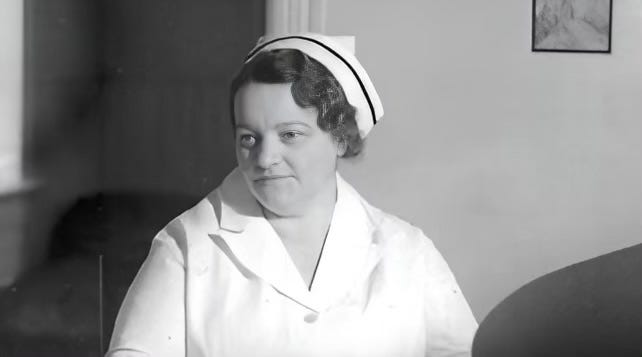Rene Caisse and the Essiac Formula
A Legacy of Herbal Innovation
Rene Caisse, a Canadian nurse born on August 11, 1888, in Bracebridge, Ontario, dedicated much of her life to promoting an herbal remedy known as Essiac. Trained in private hospitals in Ontario and Connecticut, Caisse’s journey into alternative medicine began in 1922 while working in Haileybury, Ontario. There, a patient shared a story of recovering from breast cancer using a tea formula derived from Ojibwa indigenous traditions. Intrigued, Caisse obtained the recipe and began experimenting with it.
The Essiac formula, named after Caisse’s surname spelled backward, consists of four primary herbs: burdock root, sheep sorrel, slippery elm bark, and turkey rhubarb root.
Caisse believed this blend could detoxify the body, boost immunity, and alleviate cancer symptoms. She first tested it on her aunt, who had been diagnosed with terminal cancer and reportedly lived for another 21 years after treatment. Encouraged, Caisse expanded her efforts, treating patients informally and often without charge.
In the 1930s, Caisse opened a clinic in Bracebridge, operating from 1934 to 1942. During this period, she reportedly helped hundreds of individuals suffering from various ailments, primarily cancer. Patients flocked to her, drawn by word-of-mouth testimonials and petitions supporting her work. Some physicians referred cases to her, and in 1938, a petition with over 55,000 signatures urged the Canadian government to legalize Essiac. Despite this, medical authorities remained skeptical, viewing it as unproven and potentially quackery.
Caisse faced significant opposition. The medical establishment demanded clinical trials, but she guarded the formula closely, fearing exploitation. In 1938, she was arrested for practicing medicine without a license, though charges were dropped. Efforts to gain official recognition, including bills in the Ontario legislature, failed narrowly. By the 1940s, under pressure, she closed her clinic but continued treatments privately until the 1970s.
Scientific scrutiny of Essiac has yielded mixed results. While anecdotal evidence abounds, rigorous studies, including those by the National Cancer Institute and Canadian health authorities, found no conclusive proof that it cures cancer. Proponents argue it aids in symptom relief and detoxification as a complementary therapy. Caisse never profited from Essiac, insisting on its humanitarian purpose. In 1977, she entrusted the formula to Resperin Corporation for further research, but disputes arose over its commercialization.
Rene Caisse passed away on December 26, 1978, at age 90. Her story endures as one of perseverance against institutional resistance, highlighting tensions between traditional herbal knowledge and modern medicine. Today, Essiac remains available as a dietary supplement, inspiring ongoing debate about natural remedies in health care.
E-Tea from Nature's Sunshine (based on the Essiac recipe)


